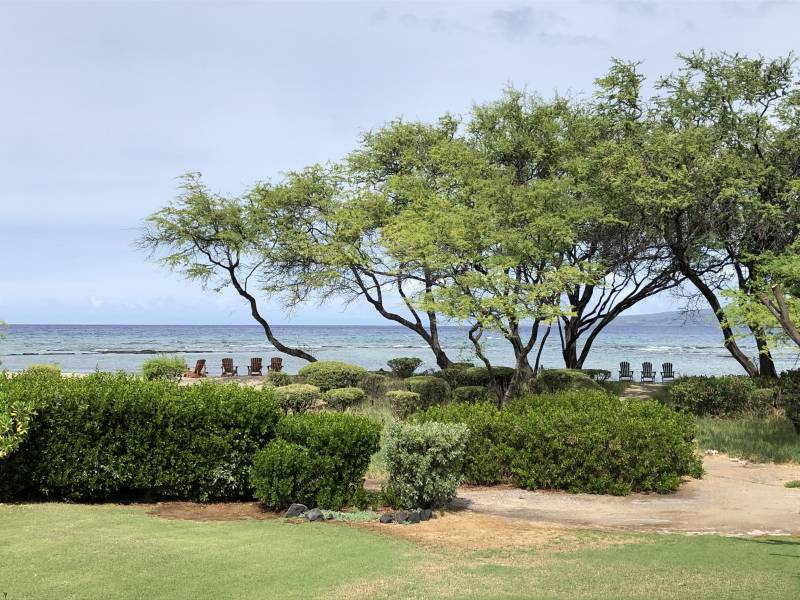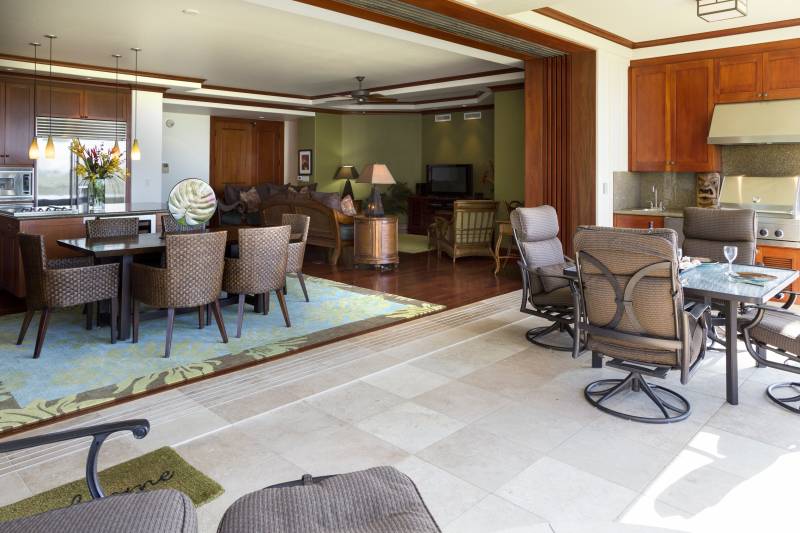On November 20, 2018, the Hawaiʻi County Council passed Bill 108, for the first time regulating short-term vacation rentals on the Big Island. The provisions changed little from my previous report a month ago.
Refinements will be hammered out as the countyʻs Planning Department drafts rules for implementing the Act, which will become a new section of the Hawaiʻi Island Zoning Code.
There will be at least one public hearing on the rules before the effective date of April 1, 2019. Among the most important questions to be answered in the rules will be the exact procedure for registering your rental property.

Resort zoned properties that are vacation renting, like this Halii Kai condo (MLS 619626) will now need to be registered with the County.
How is a Short Term Vacation Rental Defined
First, to know whether or not this new law applies to your Big Island property, here is the definition of “short-term vacation rental”:
- a dwelling unit where the owner or operator does not reside on site
- has no more than five bedrooms for rent
- is rented for 30 consecutive days or less (30 or more is considered a long-term rental)
- is in a hotel, resort or commercial zone, unless “grandfathered” with a nonconforming use certificate
There are exclusions, in other words, for certain types of short-term rentals that will not require you to apply under the new vacation rental registration rules. If you live on site in a residential neighborhood and run a bed-and-breakfast, you already need to comply with the existing bed-and-breakfast portion of the Zoning Code. If you live on island full time but want to take a vacation and rent out your house for the week during Ironman or Merrie Monarch to pay for it, you donʻt have to register to do that.
Summary of the Big Island Vacation Rental Requirements – For Existing Rental Owners
I am putting this in all caps: ALL EXISTING VACATION RENTALS AS OF APRIL 1, 2019 MUST REGISTER BY OCTOBER 2019. Owners must show evidence that they have paid transient accommodations tax and general exercise tax on their rental income, that they are current on property taxes, and that the dwelling being rented has final approvals on all permits. Now is the time to clean up your act if you are not in compliance on these requirements.
Since the stated purpose of the bill is to prohibit unhosted short-term rentals for properties in residential or agricultural zones, properties in those zonings will also need to get a nonconforming use certificate and pay $250/year to renew it.

Puako oceanfront home generates $200,000/year in gross rentals – will need to have a non-conforming use permit (MLS 612392)
Summary of the Big Island Vacation Rental Requirements – For Those Considering Buying a Home or Condo and Renting it Out Short Term
Probably the biggest change will be for second home and “future retirement” buyers whose plans included renting out their Hawaiʻi Island house or condo when they are not using it. You will only have the ability to do so if you either (a) buy a property in a resort, hotel, or commercial zone; or (b) buy a property in a neighborhood with residential or agricultural zoning that qualifies for a non-conforming use permit, has applied within six months of the effective date of the Act, and keeps the permit valid.
No new vacation rentals will be allowed in residential or agricultural zones, so it does not work for you to buy a home that has never been rented and sign it up for Airbnb or VRBO.com, or to buy vacant land and build a home with the intention of renting. The basic rule is, if the property you are buying is not in a resort or commercial district and doesnʻt already have a permit, it is probably not going to be legal to do short-term rentals in the future.

Kolea 13E has never been rented, but it is in Waikoloa Beach Resort so a new owner could choose to rent (MLS 613726)
If you are in the process of buying a home or condo in this interim period, be sure you have all the documentation you need to register the property, and apply for the non-conforming use permit if applicable.
Transition periods are not easy…you might want to work with an agent or broker who is up to speed on the vacation rental bill if you are listing or buying a property where short-term rentals apply.

Grace
March 21, 2019
Very informative. Thank you
Ian Mcveigh
August 2, 2019
Aloha, is Waikoloa village considered the “resort area”? or does it not qualify to turn it into an airbnb